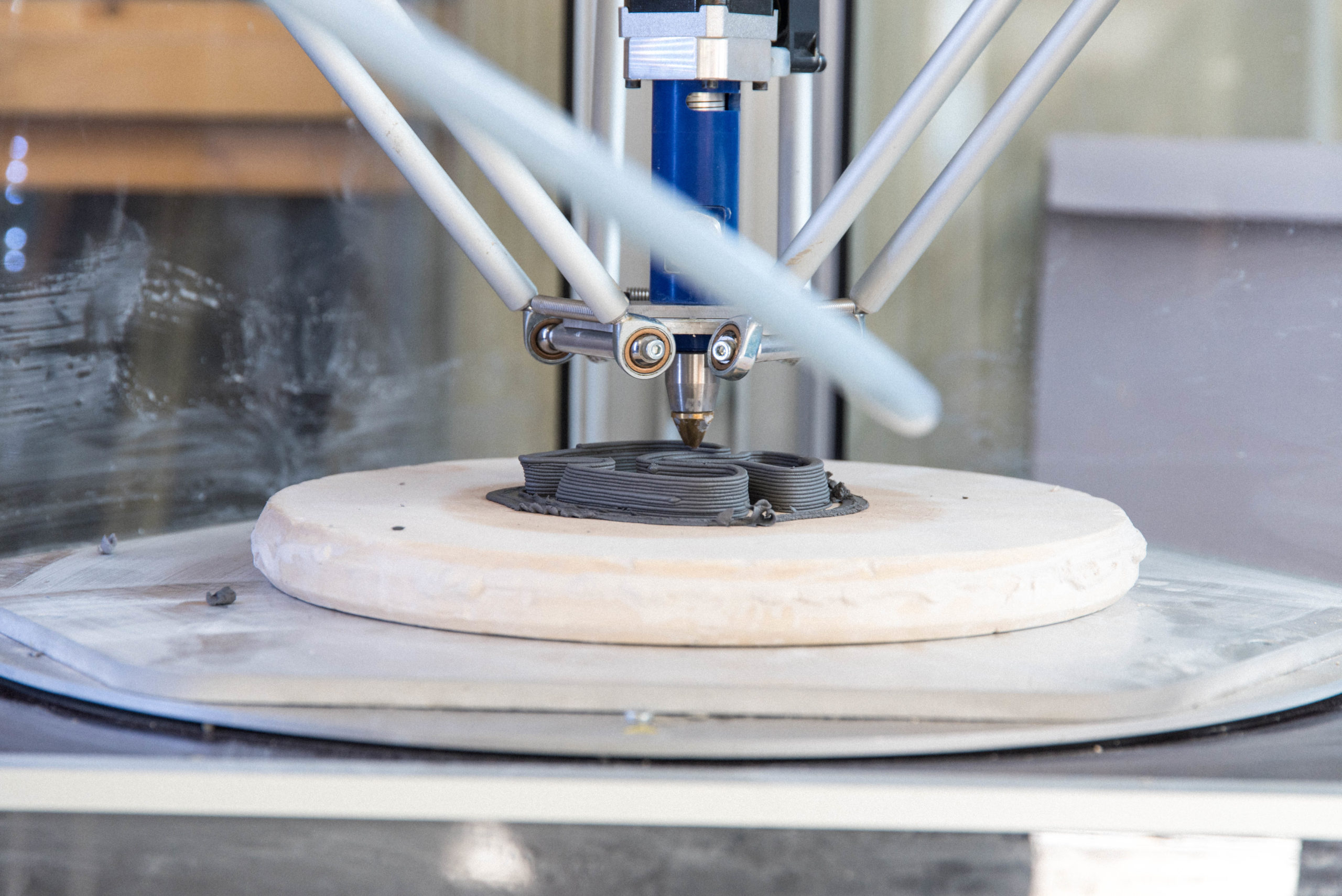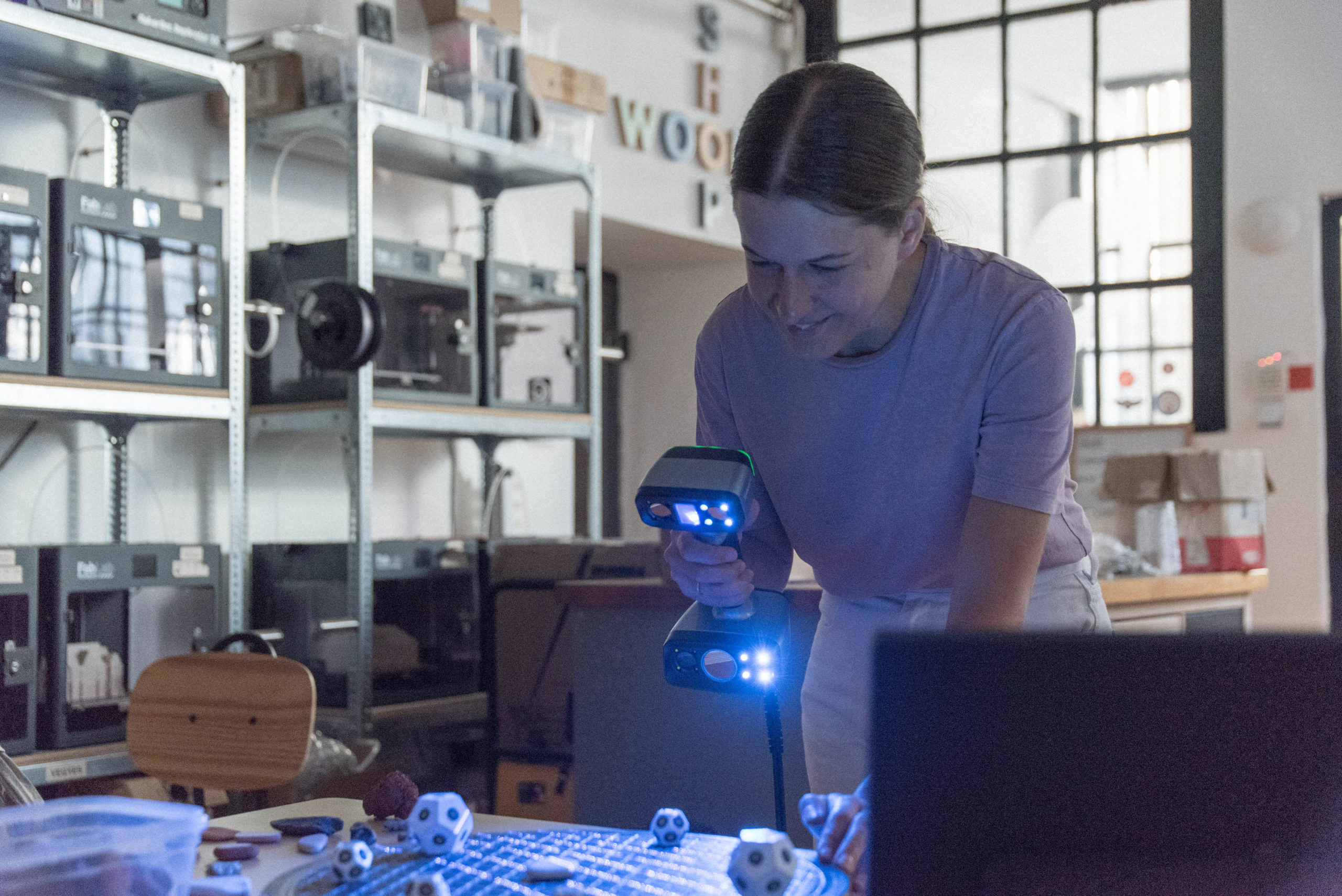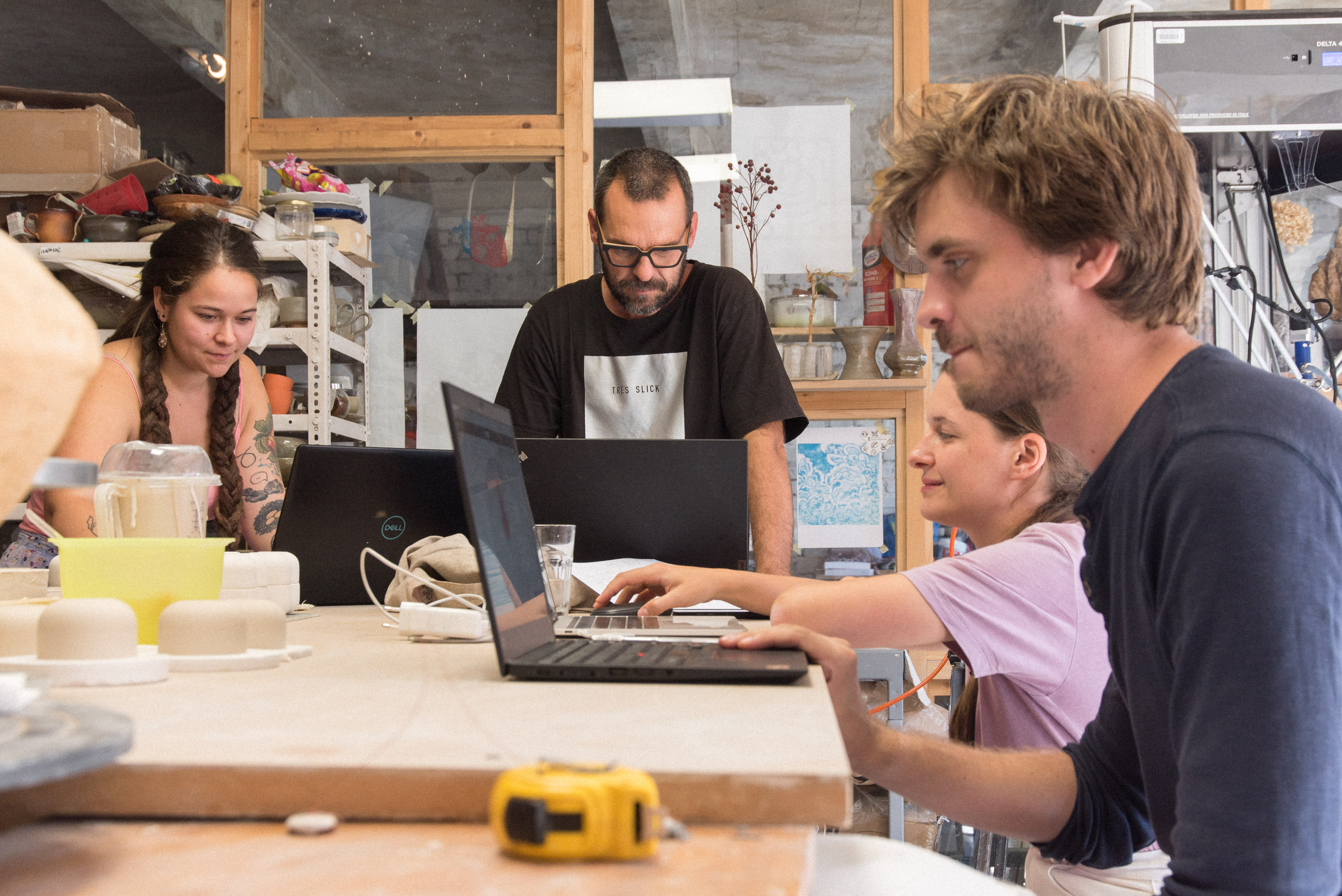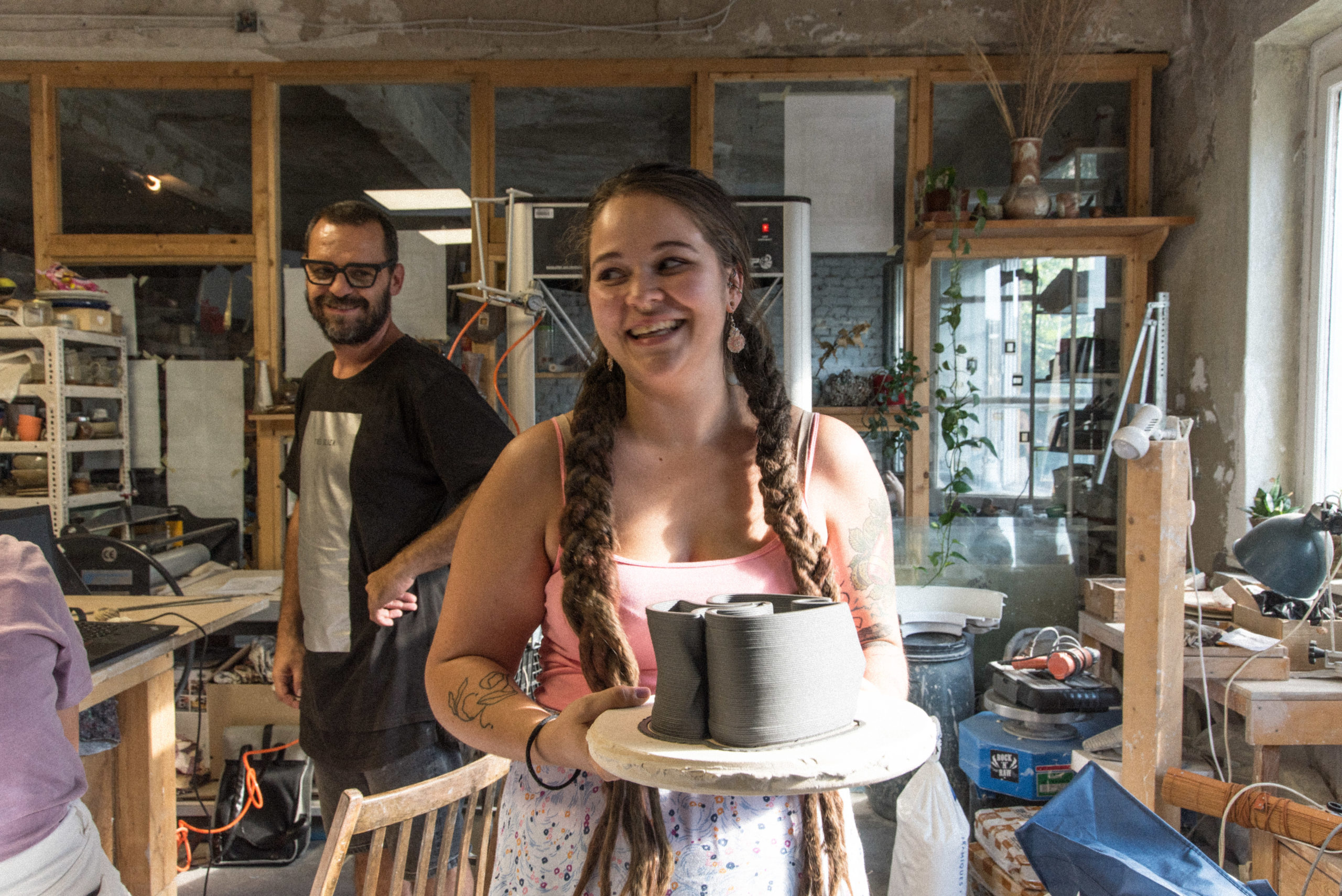Blog
Ceramic designers have been key users of FabLab Budapest for many years, touching many areas of digital design — as a self-user, mentored, or workshop participants — but ceramic 3d printing was missing from the palette. Until now. In 2021, FabLab Budapest was introduced to JetClay through the Distributed Design Platform, which held a workshop at Espacio Open in Bilbao.
As part of the lab’s Woven Futures series, in August 2022, FabLab Budapest hosted the first Ceramic 3D printing Bootcamp teamed up with JetClay in Hungary. For one week, seven ceramic designers had the opportunity to learn the process of 3D printing ceramics from Japi Contonente, the founder of JetClay.
An interesting feature of the workshop was that participants could follow the construction of an open-source ceramic printer by JetClay, so they not only became users of the printer but also understood its operation from the ground up.

About JetClay
JetClay is an open source Platform that explores the world of 3d printing and ceramics, relating the digital and the analog, tradition and technology, makers and ceramists. They develop their tools to make unique pieces of ceramics at the crossroads of industrial design, architecture, interior design, and sculpture. JetClay shares its technological development with the maker community, publishing them in repositories like WikiFactory and workshops focusing on building and using these tools.
The workshop served as an introduction to 3D ceramic printing. At the beginning of the workshop, participants learned to use the necessary softwares to operate the machine. Unfortunately, some parts of the delta 3D printer did not arrive in time for the start of the bootcamp, so the workshop started with a loaner printer. During the week, the big delta machine — named Victoria by Japi — was also successfully assembled.
The designers combined the use of digitally designed shape experiments with different composite materials for printing. At the end of the workshop, participants were experienced enough to design and operate the machine fully on their own. With printing and learning all the necessary stuff, they are competent sufficient to make the most out of this emerging technology.
The experimentation will continue in the coming months. In December, the results will be on display in an exhibition, together with the work of the other participants in the Woven Futures series.

About Woven Futures
In the Hungarian education system, technologies lag behind modern programs and tools used in the industry. Woven Futures was Hungary’s first complex and hands-on educational program that aims to make innovative technologies and related knowledge available to designers, textile professionals, and artists.
The first Bootcamp of Woven Futures was held for fashion and textile designers in 2021, and this year it was expanded into a summer-long program of ceramics and jewelry design. The program provides access to innovative and digital technologies for textile, jewelry, and ceramic designers. It offers specialized theoretical and practical training with tools that enable participants to create works on the intersection of technology, art & design. The program imparts new knowledge and supports the development of innovative practices, creations, and products through design-driven research. The tuition fee was covered for the participants by the National Cultural Fund of Hungary.

You can find JetClay’s developments and contribute to them on WikiFactory, where a community of product designers, engineers, and companies come together to design, prototype, and manufacture products.
Story by Fab Lab Budapest
